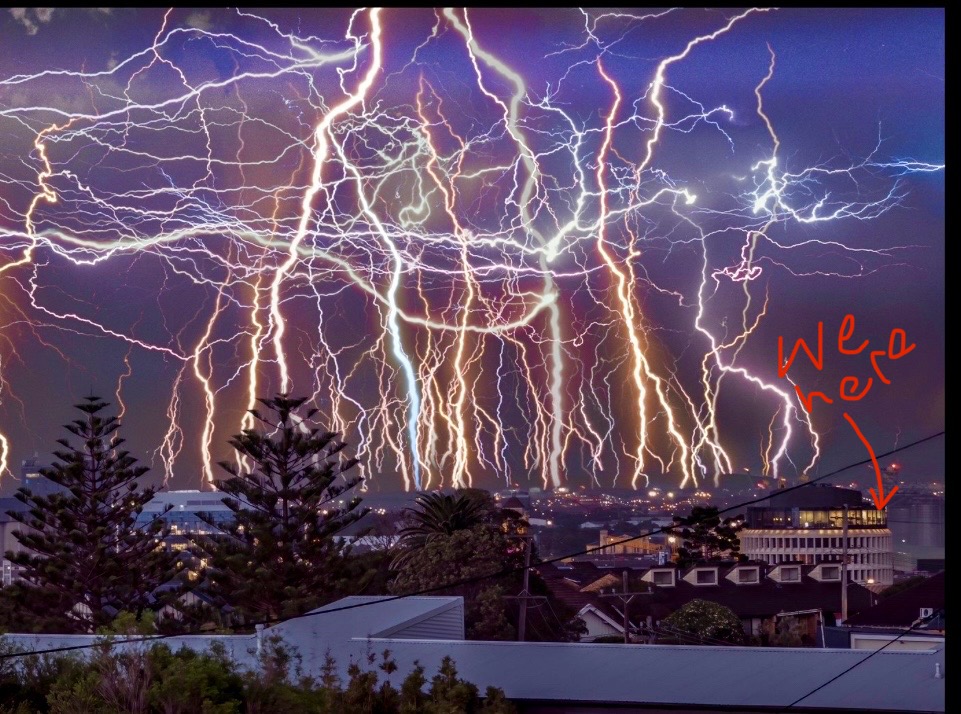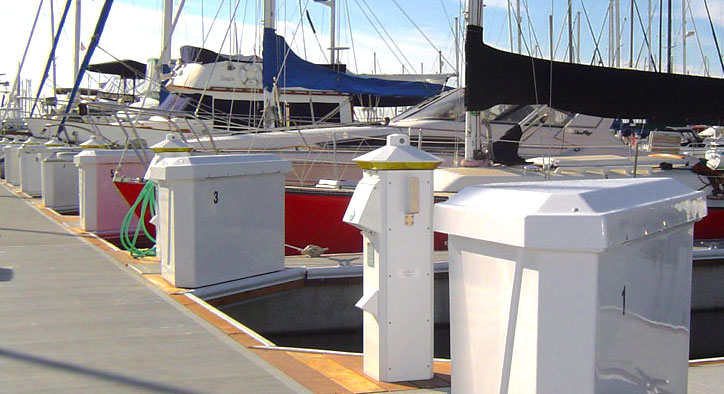The phrase “we are in a perfect storm” unfortunately has become too common and not just in relation to extreme weather events, but with Covid, the war in the Ukraine, global market instability and local and international market pressures all becoming too real.
As part of this melee the global market supply chain is both being affected and affecting supply as a result of shipping pressures, limited production and diminished resources including qualified personnel. So how do you minimise the effect of this perfect storm when buying or building your next boat?

Cetainty in Contracts
The main key point that binds all these events is the question of certainty, which seems to be under attack. One approach to build certainty is to break down as much as possible all the individual factors that go into buying or building a boat so you can get a better understanding of what can or cannot be controlled or what are the known and unknown/variable factors to be considered in view of these national and international events. The following list of individual factors is by no means complete and assumes that a choice of vessel design has been settled on.
| Known factors Starting cost/ design/fitout The builder/ broker Location Government/laws Your Lawyer The contract Survey | Unknown factors or Variables Costs variation /Supply of materials Start time of build or purchase The builder’s solvency /Completion Build location economic instability Build location political instability The contracts governing law |
From the above it can be seen that there is some cross over between the factors.
Buyer Costs
Cost is a perfect example of this cross over so while a contract may start with some certainty in the price the buyer must be careful to consider clauses that allow for variance in cost. Examples of cost variation can be in supply due to limited shipping. As a result of Covid,the ability to supply has been stretched to the limit and remains stretched with shipping costs significantly increasing. The increase is so significant that these costs are in many cases beyond the ability for business’s to soak up and thus the buyer will have to pay.
When it comes to material cost such as the cost of resins, if your building a fibre reinforced plastic vessel (FRP), any cost variation can be directly attributed to the availability of oil. This limited supply has resulted in crude oil barrel prices reaching an all time high due to the war in Ukraine and the flow on effect of limited resources due to OPEC not increasing supply at this stage.
Builder/Broker Solvency
Difficult economic times often result in business’s not remaining solvent and whilst it can be argued that vessel sales and new builds are at an all-time high undertaking due diligence should not be overlooked. The question of builder or broker solvency is a relatively easy due diligence check and should be high on the checklist before any contracts are signed let alone money changing hands.
Additionally, this form of due diligence should be something considered as part of the omgoing build/purchase process. In some countries the main difficulty with conducting this type of investigation is access to government systems or a lack of reporting in certain countries. Beyond the formal search systems, industry knowledge and having local contacts all go to complete a picture as to whether the builder or broker is financially solvent and has a good business track record.
It may not even be a question of your builder’s solvency it may be where the vessel is being built that comes into question. I had a situation some years ago where our client was situated in Singapore and wanted to buy the latest designed racing yacht in Australia. After undertaking the relevant searches and enquires, that are relatively easy in Australia, I found that the property where the vessel was being built had housed a previous boat builder who was now the subject of a bankruptcy process that included the property.
In this situation I was able to take out the uncertainty through receiving undertakings from the Trustees that my client’s vessel would be viewed as separate to the actions on foot and have all the materials marked and housed within the shed thus segregating it all from the other materials in the shed. While this process ensured my client received his boat, some years later the Yacht hit a submerged shipping container while racing under spinnaker and immediately sank, an uncertainty even I could not foreshadow.
Recently, a curious situation was bought to my attention (prior to being engaged), after contracts had been signed, with my new client purchasing a superyacht in Dubai. The sales contracted stipulated that $15 million pounds was to be deposited into the brokers account, not a trust account.
While the signing of the sales contract may have been a bit premature on my clients side he did ultimately take the cautious path and employed me to do the due diligence on the broker albeit in a very short space of time. In this situation we employed our legal contact in Dubai and also relied heavily on our contacts in the marine industry to complete our due diligence. I remember thinking, as I told my client’s personal banker to transfer the funds, if this goes south there goes my house and soul.Government/ Build Location
In todays global political and economic environment which country you chose to build I believe needs to be a real consideration. As discussed, in a previous article in Ocean, builders in the Ukraine are being significantly affected by the invasion and will be relying on their contract’s Force Majeure clause that allows for the failure to complete the contract and opens up the negotiations between the parties.
The Boat Contract
A written contract should be the central point to creating certainty however, it must be drafted carefully. A contract should be balanced and ultimately facilitate the build or purchase whilst protecting both parties as best as possible. If balanced the both parties will feel some pain, as both parties will have to concede some ground.
One of the most controversial clauses is the Jurisdiction clause when the parties are in different countries and in this scenario both parties should agree to an independent jurisdiction and use international mediation services. However, this approach is often not agreed to by the builder or broker and thus has the potential to side-track the whole process if not managed carefully by the lawyers.
A badly drafted contract can leave the boat owner exposed. As was the case with a client who came to us with serious concerns that the vessel she purchased and then subsequently entered a contract for the repayment from her ex-lover, would be sailed out of Australian waters never to be seen. If this was to occur not only would the cost to secure the vessel be commercially not viable but our client stood loose a significant sum of money. The contract failed to secure the vessel for our client let alone set up a proper payment system for the repayment of the loan to our client. After a significant cost and stress we had the vessel arrested at the last customs stop as it transited north from Queensland.
Boat Survey
The importance of a vessel survey cannot be understated. Whether building to survey or having a vessel surveyed before finalising the purchase all contracts should have a ‘subject to successful survey’ clause. Often overlooked engine, electrics and standing rigging should also receive independent inspections as they are typically out of the surveyor’s expertise. The employment of these inspectors will certainly bring certainty into the purchase of the vessel however, before the employment make sure these experts all have professional indemnity insurance.
Whilst not all risks can be removed when purchasing or building a boat however, risk can be minimised thereby building certainty by taking a global approach to understanding both international and national events and then considering these against this backdrop the known an unknown or variable factors that make up the purchase/build process. This deeper understanding may then assist in preparing contracts and planning that will ultimately minimise your stress and maximise your boating pleasure.

